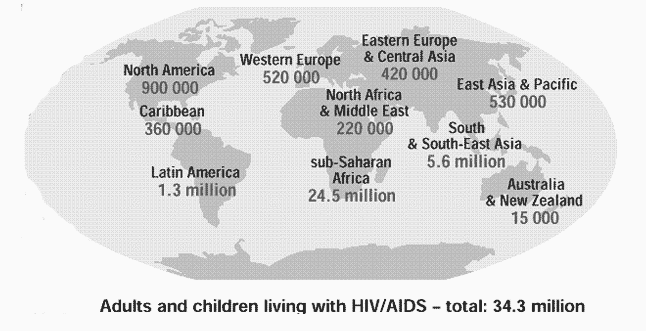Microbiology
![]()
We've only known that microorganisms cause disease for 120 years. We've only been able to eliminate viral diseases, like smallpox and polio, for about 20 years. And we have used antibiotics, which are already losing effectiveness, for only 50 years.
Changes in Human Activities now create Emerging Infectious Diseases. At Northwestern we handle, grow, identify, and study the behavior of bacteria and viruses. We study resistance and immunity and the pathogenicity of microorganisms. Below are two examples of the ever shifting landscape of microbiology.
EMERGING DISEASES:
 West Nile Virus is by far the least of the World's Global Problems with
an infection appearing in a new location. It is mentioned here because it is hitting home here in the Northeast.
Because of the overwintering of mosquitos and the ideal wet summer for their propagation, this is an infection
which will be with us for a long time.
West Nile Virus is by far the least of the World's Global Problems with
an infection appearing in a new location. It is mentioned here because it is hitting home here in the Northeast.
Because of the overwintering of mosquitos and the ideal wet summer for their propagation, this is an infection
which will be with us for a long time.
Below this image is the spectre of a much more serious problem. HIV disease infects over 40 million people world
wide. Below is a map showing its global impact.
| Health Officials study mosquitos for West Nile Virus in New York. |
Below is the world distribution of AIDS. Twenty years ago we didn't even know about the disease. In Botswana 1/3 of the people are infected and have a life expectancy of 3 years.

![]()
THE MICROBIOLOGY COURSE
Below are and some links to lab exercises. You can get everything you need for Microbiology on the Web, right here: Course Overview (Interactive with Web linked Topics), Lab Schedule, Lecture notes for the entire course, and a preview of some of the reactions you will see in lab later in the semester. You'll want to use them for reference then.
![]()
The Following Items Are Available, Just Click.
Biology 232 (Microbiology) Course Overview
Your Text Book with Great Resources
Lecture Notes for the Full Semester
Microbiology Course
Laboratory Schedule for Fall 2000
The American Society For Microbiology
![]()
Click the mail slot to send me a message
Updated 8/2000, E. Bollenbach